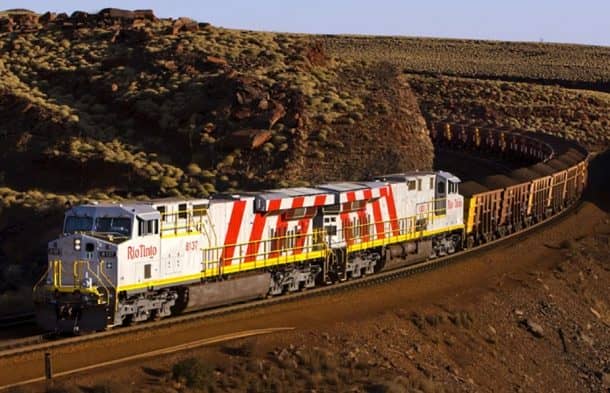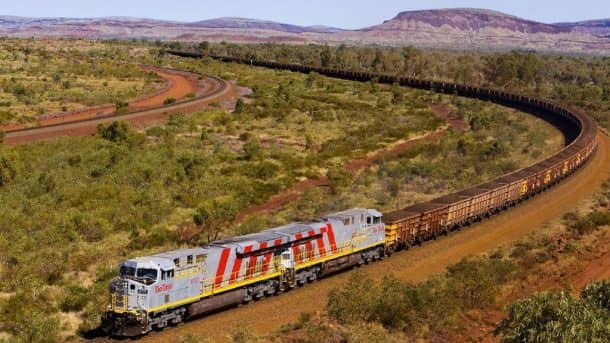Rio Tinto, metals and mining corporation recently announced that it had achieved a significant milestone by making the first iron ore delivery by a fully autonomous train which is currently considered as the world’s largest robot. The delivery took place in Pilbara, Western Australia on July 10th and is part of the firm’s AutoHaul programme. Ivan Vella, Rio Tinto Iron Ore managing director Rail, Port & Core Services, said, “The safe first delivery of iron ore by an autonomous train is a key milestone for AutoHaul. The programme will deliver the world’s first fully autonomous, long-distance, heavy-haul rail network, operating the world’s largest and longest robots.”

The special train carried about 28,000 tonnes of iron ore over 280 kilometers from the firm’s mining operations in Tom Price to Cape Lambert port. The journey was monitored remotely by operators who were located in the company’s Operations Centre in Perth. The operation center and the train were more than 1500 kilometers away. According to an estimate, Rio Tinto spent nearly $940 million to develop this self-driving train. Lido Costa, the principal engineer on the AutoHaul project, said that Rio Tinto’s specialized trains are designed to make all the decisions automatically while they are on course.

Lido said, “There is a train controller at the Operations Centre in Perth who sets the route. But once it’s running the onboard computers and the computers at the Operations Centre take over and it makes its own decisions.” He further said that a network of computers ensures that the train maintains its speed limits, avoids any collisions and bypasses any obstacles on the crossing. The system also takes measures to protect people on board and the equipment as well.
AutoHaul’s team has developed their advanced locomotive technology through thousands of hours of tests and expects that the project will be fully operational by the end of this year. The project will be “the world’s first fully autonomous, long distance, heavy-haul rail network.” Lido believes that switching from manually operated trains to autonomous ones will increase productivity and safety both. Driverless systems will also remove the need to make constant stops to change the conductors.
Lido said, “The time-saving benefit is enormous because the train network is a core part of the mining operation. If we can prevent those stoppages, we can keep the network ticking over, allowing more ore to be transported to the ports and shipped off more efficiently.” Changing the drivers is also a high-risk activity which can now be avoided to maintain the safety. Vella said that the firm is working with the drivers to implement these transitions securely. He added, “We will continue to ensure our autonomous trains operate safely under the wide range of conditions we experience in the Pilbara, where we record more than eight million kilometers of train travel each year. We are working closely with drivers during this transition period as we prepare our employees for new ways of working as a result of automation”.



good but there goes your jobs
Great acheivment, does the train unload in Track hopper with line side equipment arrangements. Interested to know more
Wonderful